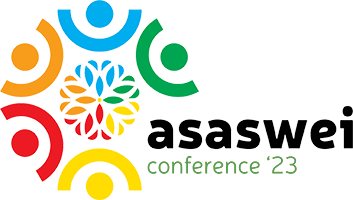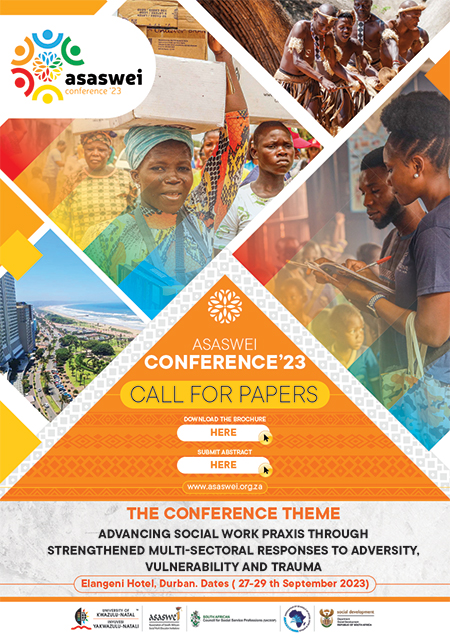Secondary tabs
The View page displays a submission's general information and data. Watch video
Submission information
Submission Number: 89
Submission ID: 116
Submission UUID: 0dbf6f9c-03b9-4700-bb12-bbb7255819f2
Submission URI: /2023/abstracts
Created: Mon, 07/03/2023 - 16:15
Completed: Mon, 07/03/2023 - 17:02
Changed: Wed, 08/16/2023 - 13:28
Remote IP address: 105.244.115.24
Submitted by: Anonymous
Language: English
Is draft: No
Current page: Complete
Webform: Abstract
Presenters
Dr.
Jacobs
Susanne
NWU
Susanne Jacobs (PhD Education, MDIAC, Play Therapy) taught in Teacher Education (early childhood, under, tertiary and postgraduate) for 30 years. Current postgraduate supervision entails research methodology and subject-specific content at Community Psycho-social Health and Well-being and Social Work (COMPRES) and the Africa Unit for Transdisciplinary Health Promotion (AUTHéR). Qualitative research focuses on restoring, preserving, and strengthening community, individual psycho-social resilience, relational health, and well-being through interdisciplinary strengths-based approaches (schools/ families in diverse societies). Appreciative Inquiry (AI) (constructing change) is used as a strengths-based perspective and method of inquiry (individuals/ groups /communities). Interests support culturally responsive, innovative, viable ecology approaches, including Gestalt, Cognitive-behavioral, Narrative, Positive Psychology, Resilience, Attachment theories, and educationally-based marriage enrichment.
No
Abstract
Culturally responsive marriage enrichment interventions: Strengthening relational well-being
THEME 2: Building sustainable, resilient, and self-reliant communities through indigenous modalities, inter-sectoral collaborations, and partnerships
SUB 2.1 Supporting families in mitigating vulnerabilities
Oral Presentation
Traditional African marriage systems, rooted in indigenous governance systems, carried from generation to generation, reinforce satisfactory spousal healthy family outcomes. However, modernisation, neglecting core values of indigenous practices, upsurges divorce and vast falling apart of family structures. Marriage enrichment programs (MEPs) provide the necessary skills to eliminate future problems. Black Africans, hitherto, lack instruction on healthy functioning marriages, seeking help primarily once problems escalate. Empirically evaluated culturally relevant programs, blending indigenous with current systems, are scarce. Often unskilled and lacking in numbers, practitioners face challenges addressing the high one-on-one need. This mixed method three-phase research, grounded on current empirical international and South African data, builds on the strengths of the Royal Bafokeng Nation indigenous community and reports on preventative education interventions to sustain, support, strengthen and preserve marriages, promoting sustainable, resilient societal structures, individually, collectively and cross-culturally. Findings can adapt and expand interventions to advance and direct practice and policy application.
Reviewer ONE Feedback
Dr
Gladys
Bhuda
Yes
Empirical Research
Accepted
Reviewer TWO Feedback
Prof
Annaline
Keet
Yes
Empirical Research
Accepted

